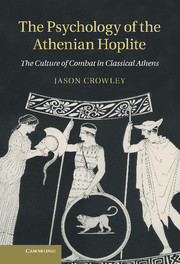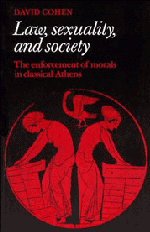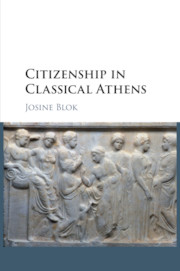The Psychology of the Athenian Hoplite
Throughout the Classical period, the Athenian hoplite demonstrated an unwavering willingness to close with and kill the enemies of Athens, whenever and wherever he was required to do so. Yet, despite his pugnacity, he was not a professional soldier; he was an untrained amateur who was neither forced into battle, nor was he adequately remunerated for the risks he faced in combat. As such, when he took his place in the phalanx, when he met his enemy, when he fought, killed, and died, he did so largely as an act of will. By applying modern theories of combat motivation, this book seeks to understand that will, to explore the psychology of the Athenian hoplite, and to reveal how that impressive warrior repeatedly stifled his fears, mustered his courage, and willingly plunged himself into the ferocious savagery of close-quarters battle.
- Establishes and systematically applies an analytic and heuristic model of combat motivation in order to demonstrate exactly why the Athenian hoplite was such an impressive warrior
- Adopts a comparative approach and analyses a wide range of modern data in order to situate the Athenian hoplite's experience of combat in the wider context of military history and to compare his capacity for combat with that of more modern soldiers
- By examining the hoplite's relationships with his immediate comrades, his military unit, his city-state and his leaders, the book offers a thorough examination of Athenian society, religion and politics
Product details
December 2020Paperback
9781108971515
250 pages
230 × 152 × 14 mm
0.4kg
15 b/w illus.
Available
Table of Contents
- 1. Introduction
- 2. Recruitment, mobilisation and deployment
- 3. The primary group
- 4. The military unit
- 5. The socio-political system
- 6. The compliance relationship
- 7. Conclusion.





